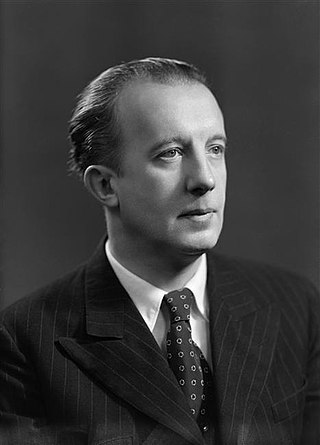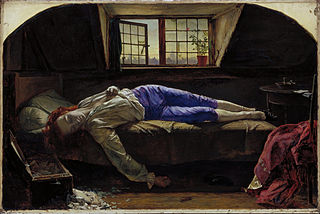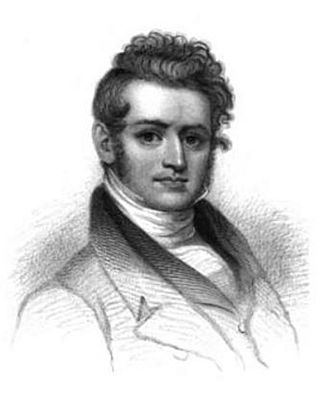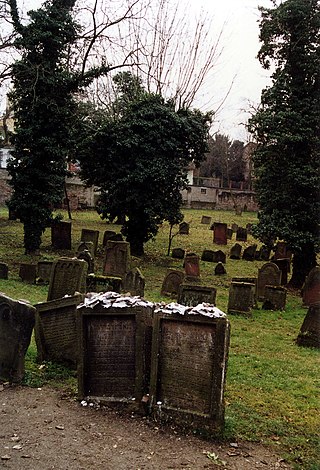Related Research Articles

Paul Éluard, born Eugène Émile Paul Grindel, was a French poet and one of the founders of the Surrealist movement.

Thomas Chatterton was an English poet whose precocious talents ended in suicide at age 17. He was an influence on Romantic artists of the period such as Shelley, Keats, Wordsworth and Coleridge.

André Marie Chénier was a French poet of Greek and Franco-Levantine origin, associated with the events of the French Revolution, during which he was sentenced to death. His sensual, emotive poetry marks him as one of the precursors of the Romantic movement. His career was brought to an abrupt end when he was guillotined for supposed "crimes against the state". Chénier's life has been the subject of Umberto Giordano's opera Andrea Chénier and other works of art.

Iosif Aleksandrovich Brodsky was a Russian and American poet and essayist. Born in Leningrad in the Soviet Union, Brodsky ran afoul of Soviet authorities and was expelled from the Soviet Union in 1972, settling in the United States with the help of W. H. Auden and other supporters. He taught thereafter at Mount Holyoke College, and at universities including Yale, Columbia, Cambridge, and Michigan. Brodsky was awarded the 1987 Nobel Prize in Literature "for an all-embracing authorship, imbued with clarity of thought and poetic intensity". He was appointed United States Poet Laureate in 1991.

Joseph Rodman Drake was an early American poet.

Harold Witter Bynner, also known by the pen name Emanuel Morgan, was an American poet and translator. He was known for his long residence in Santa Fe, New Mexico, and association with other literary figures there.
Jon Silkin was a British poet. He was also the founder of Stand magazine in 1952.
James Emanuel was a poet and scholar from Alliance, Nebraska. Emanuel, who is ranked by some critics as one of the best and most neglected poets of the 20th century, published more than 300 poems, 13 individual books, an influential anthology of African-American literature, an autobiography, and more. He is also credited with creating a new literary genre, jazz-and-blues haiku, often read with musical accompaniment.

Meir of Rothenburg (c. 1215 – 2 May 1293) was a German Rabbi and poet, as well as a major contributing author of the tosafot on Rashi's commentary on the Talmud. He is also known as Meir ben Baruch, and by the Hebrew language acronym Maharam of Rothenburg. He was referred to by Rabbi Menachem Meiri as the "greatest Jewish leader of Zarfat " alive at the time.
Andreas Kalvos was a Greek poet of the Romantic school. He published five volumes of poetry and drama - Canzone... (1811), Le Danaidi (1818), Elpis patridos (1818), Lyra (1824) and New odes (1826). He was a contemporary of the poets Ugo Foscolo and Dionysios Solomos. He was among the representatives of the Heptanese School of literature. No portrait of him is known to exist.

Emanuel Litvinoff was a British writer and well-known figure in Anglo-Jewish literature, known for novels, short stories, poetry, plays and human rights campaigning.

Emanuel Xavier Granja, is an American poet, spoken word artist, author, editor, and LGBTQ activist born and raised in the Bushwick area of Brooklyn. Associated with the East Village, Manhattan arts scene in New York City, he emerged from the ball culture scene and the Nuyorican movement to become a successful poet, writer and advocate for gay youth programs and Latino gay literature.
Abraham ben Jacob Cansino (Cancino) was a seventeenth-century Spanish-Jewish poet. He is the author of Aguddat Ezob (A Bunch of Hyssop), a collection of poems and rhetorical compositions, in three parts, praised very highly by Isaac Cansino and David Abu al-Khair. Abraham Cansino was once arrested by the Spanish authorities for having in his possession copies of the Babylonian and Jerusalem Talmuds. His son was also taken, and both were sent to Murcia, Spain, where they were treated like prisoners for a time, and fined; the copies of the Talmud were confiscated. His friends and relatives wrote poems of consolation to him; to these he replied from Murcia.
Immanuel Frances was an Italian Jewish poet and rabbinical scholar.
Abraham Isaac Castello was a rabbi, preacher, and poet. At the age of thirteen he arrived, poor and destitute, in Livorno, where, although he had previously intended to become a mechanic, his agreeable voice induced him to prepare himself to become a cantor. After the death of Adam Bondi, cantor of the Jewish congregation in Livorno, whose daughter he had married, he became his successor. He then, with indefatigable diligence, devoted himself to the study of the Hebrew and Spanish languages, and to rabbinical science. He was soon advanced to the position of rabbi and preacher, in which capacity he so greatly distinguished himself that even Christian scholars delighted to discuss with him religious and philosophical topics. Castello is probably the Jewish scholar with whom Lessing conversed during his scientific tour in the company of Duke Leopold of Brunswick-Wolfenbüttel, and, on hearing whom, the duke is said to have exclaimed in astonishment, "Here we have one even greater than Mendelssohn—of far purer metaphysics." His son, Joseph Castello, was a physician in Italy.

Eleazar ben Qallir, also known as Eleazar ha-Kalir, was a Byzantine Jewish poet whose Hebrew-language liturgical verses or piyyuṭim are sung during significant religious services, especially in the Nusach Ashkenaz rite. In particular, he wrote hymns for the Three Pilgrimage Festivals, for special Shabbats, for weekdays of festive character, and the fast days.

Arthur Davison Ficke was an American poet, playwright, and expert of Japanese art. Ficke had a national reputation as "a poet's poet", and "one of America's most expert sonneteers". Under the alias Anne Knish, Ficke co-authored Spectra (1916). Intended as a spoof of the experimental verse which was fashionable at the time, the collection of strange poems unexpectedly caused a sensation among modernist critics which eclipsed Ficke's recognition as a traditional prose stylist. Ficke is also known for his relationship with poet Edna St. Vincent Millay.
César Calvo Soriano was a Peruvian poet, journalist, and author. Calvo was part of the "Generación del Sesenta", a group of prominent Peruvian poets that came of age in the 1960s. Considered an important voice in the literature of Peru and the Amazon basin, his work has been celebrated in Latin America and a novel translated into Italian and English.
Vaterlandslied is the name of several patriotic German poems. The most famous one is "Ich bin ein deutsches Mädchen" written by Friedrich Gottlieb Klopstock in 1770 and dedicated to Johanna Elisabeth von Winthem.
Rabbi Joseph ben Emanuel Ergas also known as Joseph Ergas was an Italian rabbi and kabbalist, one of the leading critics of Nehemiah Hayyun and Sabbateanism in general.
References
 This article incorporates text from a publication now in the public domain : Joseph Jacobs and Meyer Kayserling (1901–1906). "Calvo, Emanuel". In Singer, Isidore; et al. (eds.). The Jewish Encyclopedia . New York: Funk & Wagnalls.
This article incorporates text from a publication now in the public domain : Joseph Jacobs and Meyer Kayserling (1901–1906). "Calvo, Emanuel". In Singer, Isidore; et al. (eds.). The Jewish Encyclopedia . New York: Funk & Wagnalls.